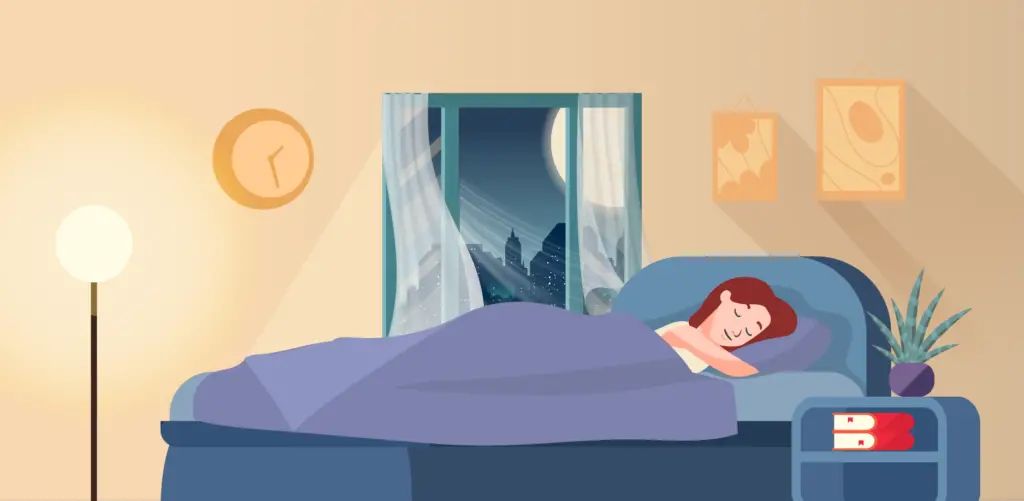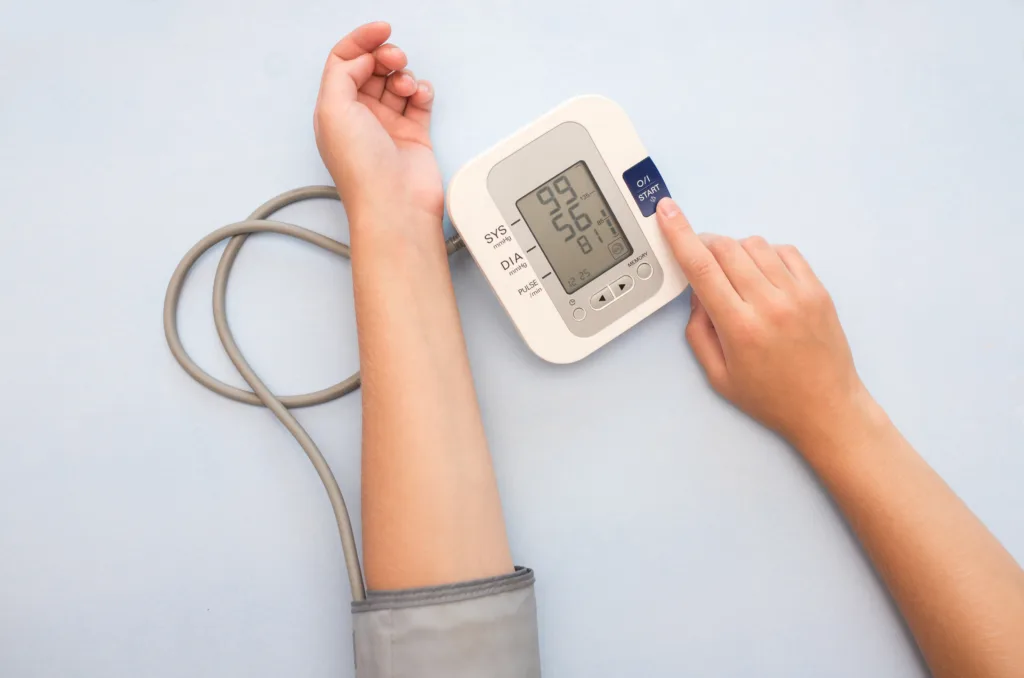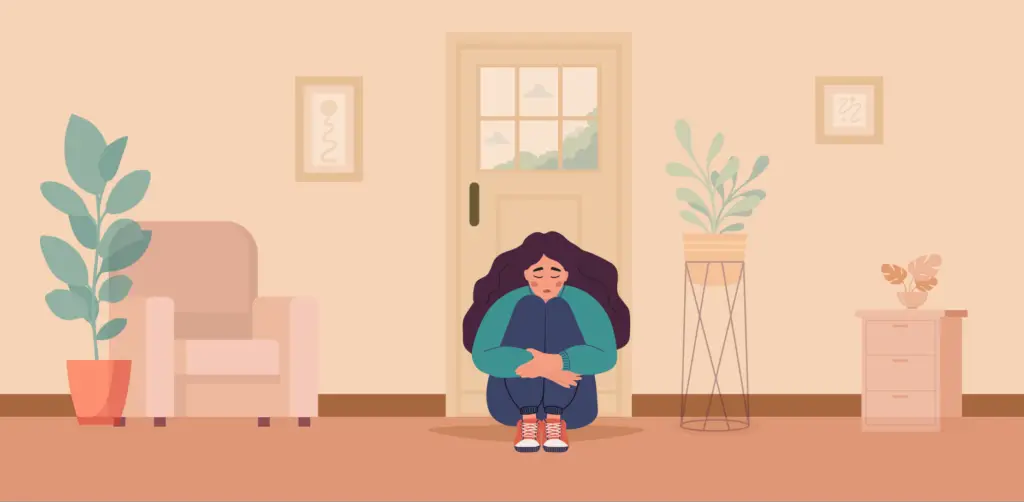Table of Contents
Have you ever struggled with intense worry for no reason? Have you wondered whether what you’re experiencing is normal, run-of-the-mill anxiety, or something else?
Let’s face it, anxiety is unavoidable. We’re 100% going to have times when we feel anxious. Yet, here’s a difference between normal anxiety and an anxiety disorder, but the boundary between the two may be hard to distinguish.
If you’re concerned or confused about your prolonged anxiety, we’ve put together a guide that can help. We’ll explore what anxiety disorder is, the possible causes, how it’s diagnosed, and some potentially beneficial treatment options.
Let’s take a closer look.
What does anxiety feel like?
Anxiety is a natural and common response to challenging situations. Such tension can actually be beneficial under normal circumstances since it makes you more alert and aware.
However, people with anxiety disorders often have intense worry and fear for no clear reason. If you find it hard to control your concerns and it affects your daily activities, you may have more than just everyday anxiety – you may have an anxiety disorder.
According to the National Health Service (1), you may have an anxiety disorder if you:
- feel restless, nervous, or irritable
- become tired easily
- have difficulty concentrating or sleeping
- have tense muscles and an increased heart rate
Anxiety disorder diminishes your quality of life. Those with anxiety disorder may suffer massive impairment in their work and social situations (2). The good news is the more informed you are, the better prepared you will be to manage anxiety when it occurs and the more in control and empowered you will feel.
Different types of anxiety disorder
According to the Diagnostic and Statistical Manual of Mental Disorders, 5th edition (DSM-5), the diagnostic guide used in the field of mental health, there are a number of types of anxiety disorders (3). Let’s look at a few:
Generalized anxiety disorder (GAD)
Generalized anxiety disorder (GAD) is one of the most commonly diagnosed anxiety disorders. It involves uncontrollable, excessive worry and anxiety on most days for at least six months, which hampers your daily life activities. These symptoms must occur in combination with at least three out of six additional symptoms, including things like sleep disturbance and trouble concentrating (4).
Panic disorder
It involves sudden periods of intense fear, discomfort, or a sense of losing control. It can make you worry about, and try to prevent, the next attack.
Phobia-related disorders
It relates to excessive worry when you’re exposed to a specific object or situation. In this case, your fear of the perceived danger is out of proportion to the real danger.
Social anxiety disorder (social phobia)
It is an intense fear of being judged by others. You may constantly avoid social situations due to fear of embarrassment or not wanting to be the center of attention.
How common are anxiety disorders?
Anxiety disorders are among the most common mental illnesses in the United States, affecting approximately 40 million (19.1%) American adults (5). Studies show that women are more likely to experience anxiety symptoms than men (6).
In addition, approximately 7% of U.S. children aged 3-17 experience issues with anxiety each year (7). Among adolescents, anxiety disorders are the most prevalent psychiatric disorders, with a worldwide prevalence in 2017 of 7.3%. Overall, female adolescents are more prone to developing emotional disorders and are 1.5 to 2 times more likely than men to have an anxiety disorder (8).
Among older adults, generalized anxiety disorder is the most common type of anxiety disorder. Anxiety in this age group often relates to traumatic events, such as falls or acute illnesses (9).
Let’s take a deeper look at some of the reasons anxiety disorder can develop.
Does everyone have anxiety disorder?
Anxiety can manifest for a variety of reasons. There are a number of causes and risk factors that may lead to anxiety progressing to an anxiety disorder (10). Some of the most common ones include:
Stressful events
Negative life events are a common risk factor for anxiety. For example, typical stress at work or in relationships, or even stressful world events, can trigger symptoms of anxiety. More serious negative events, such as abuse or some other type of traumatic event, may lead to a severe form of anxiety, such as panic disorder or post-traumatic stress disorder (PTSD).
Personality
If you are a perfectionist or always like to be in control, or if you have low self-esteem or shyness, you may be at increased risk for developing anxiety. If you tend to have a glass-half-empty outlook or usually worry that the worst will happen, you’re also more likely to experience anxiety.
Health issues
Those dealing with severe illness or chronic health conditions are at increased risk of developing anxiety. Some ailments, such as thyroid problems, asthma, diabetes, depression, or heart disease, may worsen anxiety symptoms. When talking to your doctor about anxiety, you should have a complete physical exam and evaluation to rule out any underlying medical conditions.
Psychiatric history
According to research, if you have a personal history or family history of a mental health disorder, you are at increased risk for developing an anxiety disorder (11).
Substance use
Drugs, alcohol, and other substances lead to anxiety problems, which are usually related to sudden withdrawal or trying to avoid drug withdrawal.
Brain chemistry
Research shows that anxiety disorders may be related to defective complex circuits in the brain, which are involved in controlling fear and other emotions (12).
What are the effects of anxiety on your body?
Anxiety can lead to a number of issues, so it’s important not to underestimate the seriousness of an anxiety disorder. Living with it can pose significant physical stress on your body.
For example, anxiety disorder causes your brain to release more stress hormones, including adrenaline and cortisol. This can increase the frequency of weight gain, as well as dizziness and headaches (13).
Moreover, chronic stress can weaken your immune system, causing you to become more prone to frequent illnesses. Anxiety disorder can also impact your short-term or working memory, and you may find yourself forgetting something simply because you were not paying attention or had too much on your mind (14).
Anxiety disorders can also cause a rapid heart rate, chest pain, and palpitations. If you’ve had heart disease before, anxiety disorders may increase the risk of coronary events (15).
Certain digestive issues can occur with long-term anxiety, such as nausea, stomach aches, diarrhea, and loss of appetite (16).
Other complications of an anxiety disorder include insomnia, nightmares, and a generalized feeling of sadness and being overwhelmed.
Anxiety in children
Many children also deal with anxiety in today’s modern world. These children may be rather quiet and eager to please others, and so their symptoms may easily be missed. It’s important to be alert to the following signs in your child and intervene as soon as possible if you notice they are (17):
- finding it hard to concentrate
- not sleeping well or sleeping too much
- not eating properly
- getting angry easily or frequently
- constantly feeling tense and fidgety
- using the toilet often
What happens if I don’t get treatment for my child with an anxiety disorder?
When a child suffers from anxiety, their worries may be so harsh that they get in the way of school, home, or play. Loss of friendships, failure in school performance, and low self-esteem are some of the major problems that may manifest. If you don’t get proper treatment for your child, their mental and physical health problems may worsen.
How are anxiety disorders diagnosed?
If you have symptoms of anxiety disorder, your doctor will do a thorough history and examination and can run various tests to rule out other health conditions. However, there are no lab tests that can precisely diagnose anxiety disorders.
If your doctor doesn’t find any physical reason for your feelings of anxiety, they may send you to a psychologist, psychiatrist, or other mental health specialist for further evaluation. The specialist will ask you many questions and use psychological tests to determine if you have an anxiety disorder based on the criteria in the DSM-5. They will then recommend further testing or treatment based on their findings.
Can Anxiety Be Cured? Prevention and treatments
There are a variety of ways to manage and treat anxiety, including natural and at-home treatments, as well as professional therapy and medication. Of course, preventing anxiety from occurring in the first place is best.
In order to help prevent anxiety disorder, there are simple things you can do yourself. These include engaging in various forms of relaxation, exercising regularly, and getting proper sleep and good nutrition. You can also incorporate meditation into your daily routine since it can also help prevent anxiety.
However, it’s important to remember that anxious feelings are a natural occurrence in life. Just because you experience them, it doesn’t necessarily mean that you have a mental health disorder
Next, let’s take a look at some options for the treatment of anxiety.
Treating anxiety without medication: At-home treatments
Should you develop anxiety, some of the methods that can help prevent anxiety can also be used to treat anxiety at home. To handle stress and anxiety effectively, it’s important that you control some lifestyle factors. These include:
Exercise
Exercise is a great and simple way to boost your mood. It triggers endorphins—your brain’s feel-good neurotransmitters. Even everyday activities, like house cleaning or yard work, can reduce stress (18).
Meditation
There are some great studies showing the benefits of managing stress and anxiety using things like breathing exercises, muscle relaxation, and meditation. When feeling anxious, you might think that you can’t control your mind or body’s reaction to stress, but meditation can help you be more aware and give you more control over how you experience and respond to stressful situations. You may also feel that anxiety makes you focus more on your past mistakes or future fears. By taking some time to meditate, you can not only experience living in the present moment but also learn to focus more on positive things (19).
Avoid alcohol and recreational drugs
Substance abuse increases your risk of developing anxiety disorder, so eliminating these can be an important part of managing anxiety.
Stop consuming caffeinated drinks
Coffee, cola, energy drinks, and chocolate, all of which contain caffeine, can potentially increase symptoms of anxiety. Caffeine is a mood-altering drug, and it can also increase blood pressure and heart rate, thus intensifying any feelings of anxiety (20).
Get enough sleep
Sleep and mental health are closely connected. Following a relaxing bedtime routine through a technique called sleep hygiene can help your mood return to normal (21).
Eat a healthy diet
To alleviate anxiety, it’s best to avoid sugar, processed vegetable oils, and artificial sweeteners. For some, gluten may also play a role. Conversely, a diet that includes things like omega-3 fatty acids, turmeric (curcumin), and vitamin D can be beneficial. Certain types of diets, such as ketogenic diets, have also been shown to help reduce anxiety symptoms (22).
Professional anxiety disorder treatments
If you or your doctor feel that at-home therapies aren’t enough, you may need to seek professional treatment. Let’s take a look at some options.
Psychotherapy
One common and effective treatment is psychotherapy. Psychotherapy is a counseling method that helps you understand how your emotions affect your behaviors. A health specialist will talk to you about your thoughts and feelings and suggest ways to help you understand and manage them.
A couple of common therapies that can help deal with your specific anxieties include:
- Cognitive Behavioral Therapy (CBT): Using CBT, you can learn new, positive ways to think, behave, and react to situations so that you can feel less anxious and fearful. CBT has been well-researched and is the gold standard in psychotherapy treatment (23).
- Acceptance and Commitment Therapy (ACT): ACT uses mindfulness and goal-setting methods to help you overcome and manage discomfort and stress (2).
Medication
There are also a variety of medications that can be used alone or, more ideally, in conjunction with at-home treatments and psychotherapy. In fact, medication does not cure anxiety disorders but can relieve symptoms. Some of the most common drugs used to combat anxiety disorders include (2, 23):
- Antidepressants: It’s believed that these drugs help your brain control chemicals relating to mood or stress. With these drugs, it’s especially important that you strictly follow the dose prescribed by your doctor. It’s also important to taper off these drugs slowly when the time comes (at your doctor’s direction) in order to prevent potential side effects or worsening of symptoms. It can take several weeks for these medications to start working, so a bit of patience may be required.
- Anti-anxiety medications: A commonly used medication class in the treatment of anxiety is benzodiazepines. However, this drug is best taken for only short periods of time in order to prevent drug dependency. Again, work with your doctor to reduce the dose slowly to avoid withdrawal symptoms.
- Beta-blockers: While this category of drugs is commonly used to treat high blood pressure, it can also be used to relieve some symptoms of anxiety, such as rapid heartbeat. If this is one of your symptoms, you can discuss this treatment option with your doctor.
It can take time working with your doctor to figure out the proper medication, as well as the best dose, to treat your anxiety effectively. You should find a doctor that you feel comfortable working with so that you can work together to manage your anxiety disorder and live your life unencumbered.
Summary
While you may feel concerned or fearful of getting an anxiety disorder, it is just like any other illness: everyone deserves care, help, and support to get through it. If you are diagnosed with anxiety disorder, it doesn’t mean that it will last forever, and the good news is that many treatment options exist. What’s vital is that you do not hesitate to reach out to your doctor if you or a loved one suffer from this problem.

















Comments
0